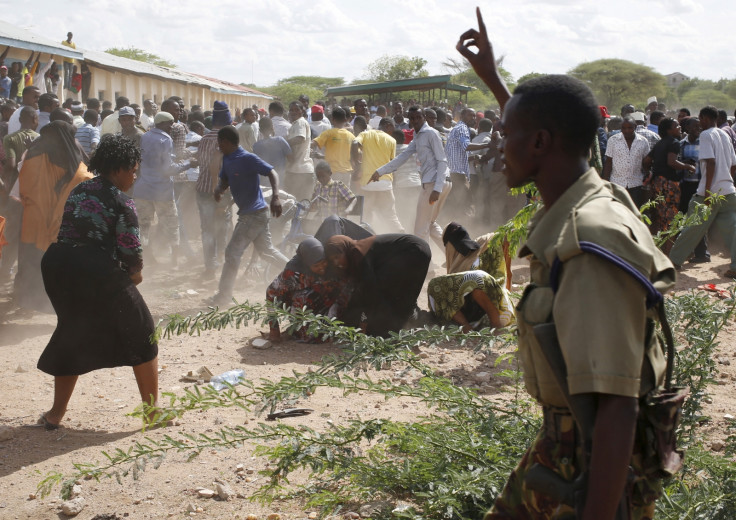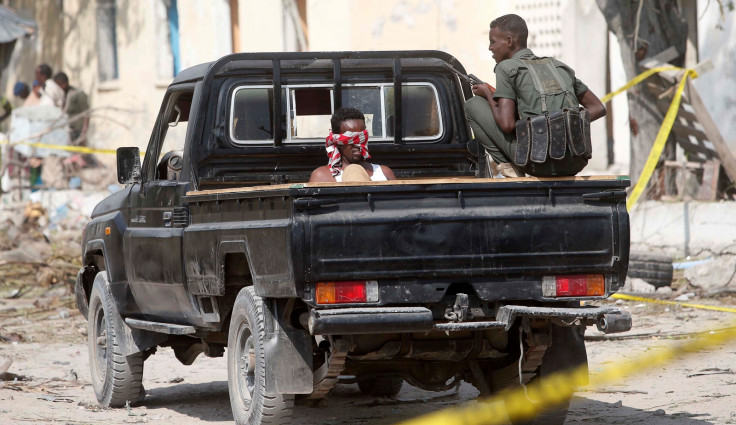Three men beheaded in Kenya in suspected Al-Shabaab attack
Somalian militants often attack neighbouring country in retaliation to deployment of troops.
Three people have been beheaded in Kenya in an attack by suspected Somali militants.
Lamu County Commissioner Gilbert Kitiyo told AP suspected Al-Shabaab militants burned the victims' houses down during the attack at the Maleli village, near Witu town, along the Indian Ocean coast.
The motive behind the execution is not known. However, attacks at the hands of Shabaab militants occur often in Kenya, in retaliation to the Linda Nchi military operation, which saw the deployment of Kenyan troops in Somalia to drive out militants in 2011.
In one of its deadliest attacks in Kenya, the militants killed 148 people at a university college in Garissa in 2015. The terrorists claimed the attack was carried out as the university was "on Muslim land colonised by non-Muslims".
Shabaab is also infamous for a mass shooting carried out at the Westgate Shopping Mall in Nairobi in 2013, when masked gunmen stormed the facility and killed at least 67 people.
Efforts to tackle Sahabaab insurgency
Shabaab, which means "The Youth", is a Somali terror group affiliated with al-Qaeda and Isis. An offshoot of the Islamic Courts Union – a rival administration to the Transitional Federal Government in Somalia – Shabaab aims to overthrow the Somali government and impose its own version of Islam in the country.
It controlled Mogadishu and the southern region of Somalia from 2006 until 2011, when it was defeated by African Union peacekeepers.

Earlier this year, Somalia's president, Mohamed Abdullahi "Farmajo" Mohamed, declared war on Shabaab terrorists. He offered a 60-day amnesty period to militants to surrender and vowed to help them reintegrate into society.
The group, however, dismissed the declaration of war and rejected the offer of amnesty.
In June, Mohammed urged once again the militants to "take advantage" of the amnesty he had offered them and said Somalia will "show no mercy in dealing with Al-Shabaab".
Earlier this year, US President Donald Trump approved a plan to increase counter-terrorism strikes in Somalia.
The new directives, approved in March, allow the US to "conduct legal action against al-Shabaab within a geographically-defined area of active hostilities in support of partner force in Somalia".
On 4 July, the US launched an air strike killing an unknown number of Shabaab militants. Another air strike conducted in June destroyed a key Shabaab base in the country.
Shabaab's attacks have not decreased. In June, the Islamist outfit claimed responsibility for a bomb blast at a hotel and a siege at a restaurant in the capital that resulted in the death of at least 31 people. All of them were civilians.

© Copyright IBTimes 2024. All rights reserved.






